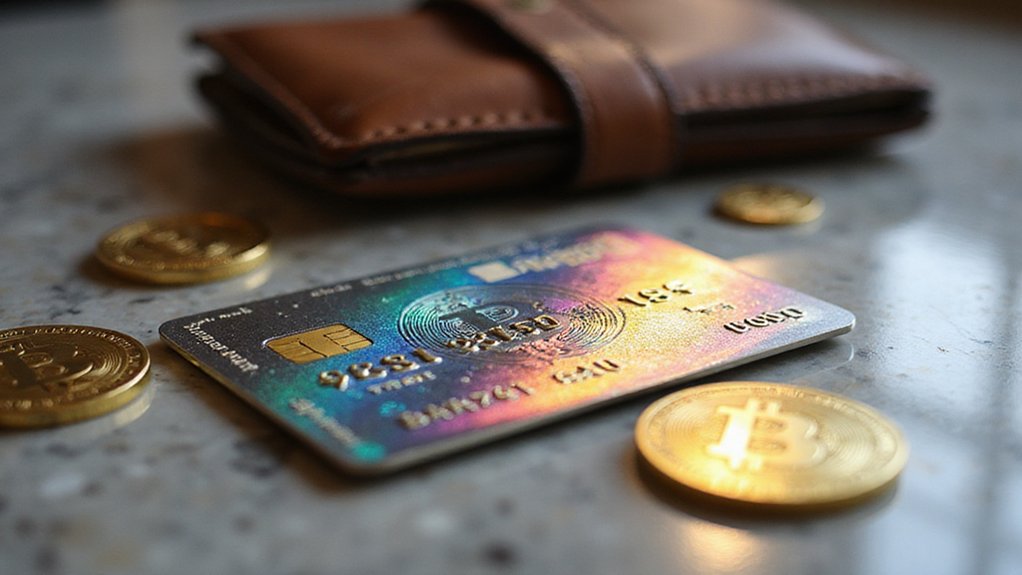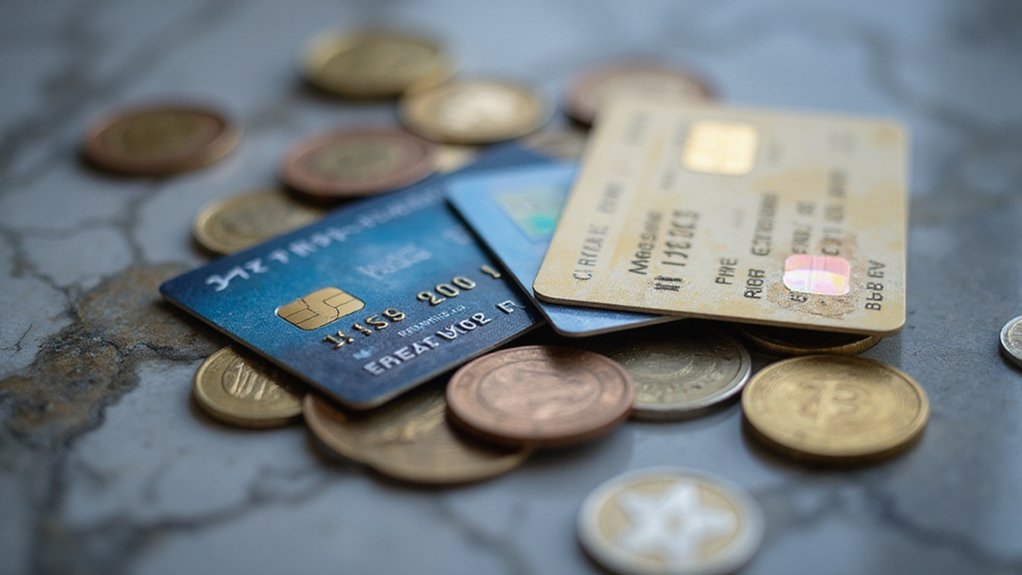While traditional credit cards reward consumers with airline miles that depreciate faster than a poorly timed crypto investment, the emerging crypto credit card market—valued at approximately $1.53 billion in 2024—promises something possibly more unpredictable: cryptocurrency rewards that could either fund early retirement or serve as expensive digital wallpaper.
These financial instruments operate through a mechanism that would have mystified even the most forward-thinking bankers a decade ago: users connect their cryptocurrency wallets to cards that seamlessly convert digital assets to fiat currency at the point of sale. The technology enables real-time crypto-to-fiat conversion, transforming what was once a cumbersome process into transactions as smooth as traditional card swipes—assuming the blockchain cooperates and transaction fees don’t exceed the cost of one’s morning coffee.
Technology has transformed cryptocurrency spending from digital wallet gymnastics into card swipes that rival traditional payments—when the stars align.
The rewards structure represents a fundamental departure from conventional credit card economics. Instead of accumulating points that airlines devalue with the regularity of seasonal menu changes, cardholders earn Bitcoin, Ethereum, or other cryptocurrencies on every purchase. This creates an intriguing proposition: rewards that could potentially appreciate in value as digital asset markets evolve, though they could just as easily plummet during the next crypto winter.
Market projections suggest substantial growth, with forecasts indicating the sector could reach $3.58 billion by 2029, maintaining a compound annual growth rate of approximately 18.4%. This expansion reflects increasing blockchain adoption, evolving crypto-friendly regulations, and growing consumer appetite for decentralized finance solutions. The crypto landscape is shifting from speculation to tangible utility, with institutional adoption driving significant market transformation.
However, the landscape remains fraught with challenges that would give traditional banking risk managers nightmares. Regulatory uncertainty creates operational complexity, while cryptocurrency volatility introduces variables that make reward valuation a moving target. Security concerns persist, encompassing both fraud detection and protection against cyber threats that grow more sophisticated alongside the technology they target. The opportunity cost consideration becomes particularly relevant when evaluating whether crypto rewards outweigh traditional cash back benefits. Growing distrust in traditional finance has contributed significantly to cryptocurrency’s rising popularity among consumers seeking alternatives to conventional banking systems.
Strategic partnerships between cryptocurrency firms and established payment networks are driving accessibility, yet some crypto credit card ventures have already exited the market—a sobering reminder that innovation doesn’t guarantee sustainability. Users must ultimately weigh the potential of cryptocurrency rewards against the reliable predictability of traditional cashback programs, steering a decision that encapsulates the broader tension between financial innovation and proven stability.









